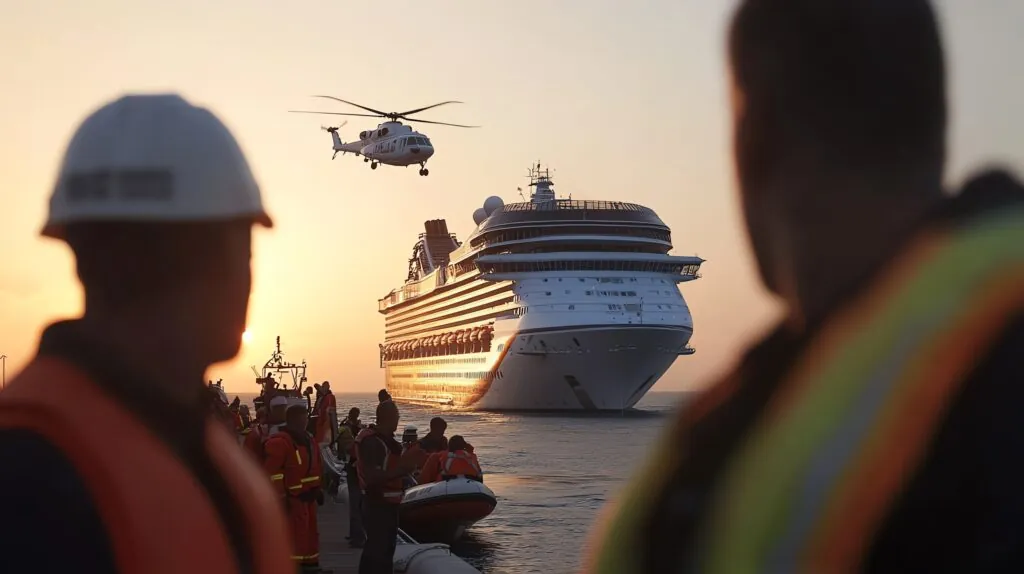Addressing Stalking and Harassment Incidents on Cruises
Cruise vacations are designed to be relaxing, enjoyable, and luxurious experiences. For many travelers, it’s an opportunity to escape from the routine and explore new destinations. However, for some passengers, the voyage can become a source of anxiety, fear, and trauma due to stalking or harassment incidents onboard.

These situations are not only deeply unsettling but also legally complex, especially when they occur in international waters. This guide provides a comprehensive overview of your rights, legal protections, and the steps to take if you experience harassment on a cruise.
What Does Harassment or Stalking Look Like on a Cruise?
Definitions and Behaviors to Watch For
Stalking and harassment on cruise ships can take many forms. Harassment may include verbal abuse, unwanted sexual advances, inappropriate touching, or threats. Stalking involves persistent, unwanted attention or surveillance that makes you feel unsafe.
The Unique Risk Factors at Sea
What makes cruise ship stalking particularly disturbing is the enclosed, inescapable nature of the environment. Victims might feel trapped, isolated, and unsure where to turn. This psychological toll is compounded by unfamiliar procedures and limited access to immediate outside help.
Immediate Actions to Take if You’re Being Harassed
Step 1: Document Everything
Begin documenting the behavior as soon as it occurs. Note times, dates, locations, and detailed descriptions. Save text messages, voicemails, or images, and ask witnesses for written accounts.
Step 2: Report to Ship Security
Report the issue to cruise ship security or guest services right away. Be clear and assertive, and ask for the incident to be formally documented. Always request a copy of the report.
Step 3: Prioritize Your Safety
Avoid direct confrontation. If you feel threatened, ask for a security escort or cabin relocation. Your safety is paramount.
Step 4: Contact a Maritime Attorney After Disembarkation
Upon returning home, consult a lawyer specializing in cruise-related legal matters. They’ll guide you through your rights and next steps.
Legal Protections for Passengers: What Are Your Rights?
Duty of Care
Cruise lines are legally required to ensure a safe environment for passengers. This includes screening staff, enforcing rules of conduct, and responding appropriately to complaints.
Your Legal Options
Victims of harassment may pursue legal recourse if the cruise line failed in its obligations. The Cruise Vessel Security and Safety Act (CVSSA) provides U.S. passengers with certain rights regarding crime reporting and onboard security.
When the Cruise Line is Liable
Negligence, ignoring complaints, or poor security measures may render the cruise line legally responsible for the harm you experienced.
How to Report Harassment Onboard
Know Who to Contact
You can report harassment to:
- Shipboard Security Officers for immediate response and investigation
- Guest Services for documentation and follow-up
- Medical Staff if physical harm is involved
Request a Formal Report
Insist on filling out an official incident report. Ask for copies and follow up during the cruise if no action is taken.
Understanding Maritime Jurisdiction and Flag State Laws
The Role of Flag States
Most cruise ships are registered under countries like the Bahamas, Panama, or Liberia—known as “flags of convenience.” These determine which nation’s laws apply when the ship is in international waters.
Jurisdiction in International Waters
If an incident occurs far from shore, jurisdiction typically belongs to the flag state. However, if the cruise began or ended in the U.S., or the cruise line is U.S.-based, you may still have access to U.S. legal systems.
Taking Legal Action After the Cruise
Step 1: Get Legal Advice
Consult a maritime lawyer who understands the intricacies of cruise line liability and international maritime law.
Step 2: Prepare Evidence
Organize your documentation: incident reports, photos, emails, witness contacts, and any medical or psychological evaluations.
Step 3: Determine Liability
Your lawyer will help determine whether a civil suit is appropriate, and who is at fault—the perpetrator, the cruise line, or both.
Common Challenges Victims Face
1. Lack of Support
Many victims report that their complaints were minimized or ignored. Staff may lack training in handling harassment sensitively and appropriately.
2. Jurisdiction Confusion
Passengers often don’t know which country’s laws apply or how to escalate their case, especially after disembarkation.
3. Limited Access to Legal Help
While onboard, passengers don’t have access to lawyers or advocacy groups, making it hard to take immediate legal action.
Safety Preparation: What Passengers Can Do
To minimize risk and improve your ability to respond effectively:
- Carry a list of emergency contacts
- Don’t share your cabin number with strangers
- Be cautious when accepting drinks or invitations
- Stay in public, well-lit areas if you feel unsafe
- Learn where the ship’s security offices are located
- Report concerning behavior early to prevent escalation
Frequently Asked Questions
Can I sue a cruise line for harassment at sea?
Yes, you can sue a cruise line if it failed in its legal duty to provide a safe environment or did not properly respond to a harassment complaint. This typically involves demonstrating that the cruise line was negligent in handling the incident or failed to implement adequate safety measures. A maritime attorney can help determine if your case meets the legal requirements for a civil suit and assist in navigating the complex jurisdictional aspects involved in cruise-related cases.
Who should I report harassment to while onboard?
If you experience harassment on a cruise ship, you should report the incident to shipboard security or guest services as soon as possible. These departments are responsible for documenting complaints, initiating investigations, and taking action to ensure passenger safety. In more serious situations, you may also seek help from the ship’s medical personnel or ask to speak with senior staff. It’s important to insist that a formal incident report is filed and to request a copy for your records.
What legal protections do I have as a cruise passenger?
Cruise passengers are entitled to certain protections under international maritime law and the laws of the country where the ship is registered, also known as the flag state. Additionally, passengers on cruises departing from or returning to U.S. ports are protected under the Cruise Vessel Security and Safety Act, which mandates crime reporting procedures and safety protocols. These laws are designed to provide a framework for addressing incidents of harassment and ensuring that victims receive proper support and recourse.
What happens after I file a harassment report on a cruise ship?
After filing a report, the cruise ship’s security team is typically responsible for conducting an internal investigation. This may involve interviewing witnesses, reviewing security footage, and speaking with the alleged perpetrator. The outcome of the investigation should be documented, and appropriate action should be taken, which could include separating the parties involved, issuing warnings, or involving local law enforcement at the next port. However, follow-up and resolution can vary significantly depending on the cruise line’s policies and the seriousness of the offense.
Does it matter where the cruise ship is registered when pursuing legal action?
Yes, it does matter. The country in which a cruise ship is registered determines its flag state laws, which influence jurisdiction and legal procedures for onboard incidents. These laws can complicate legal proceedings, especially when the ship is in international waters. However, if the cruise line is based in the United States or if the voyage involved a U.S. port, you may still have legal standing to file a claim in a U.S. court. An experienced maritime lawyer can help clarify which jurisdiction applies in your specific case.
Contact The Cruise Injury Law Firm Today
Harassment and stalking aboard cruise ships are serious issues that deserve attention, justice, and action. Every passenger has the right to a safe and respectful travel experience. If you’ve encountered unwanted attention, felt threatened, or believe your complaint was mishandled, you are not alone—and you are not powerless.
Take swift action, protect your safety, document everything, and contact The Cruise Injury Law Firm today to ensure your rights are upheld. No one should have to fear for their well-being on what should be a dream vacation.





